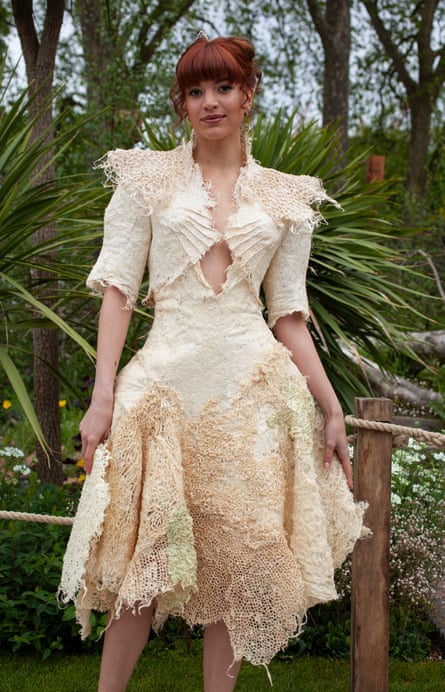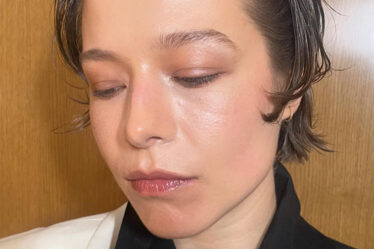
Wedding dresses are often a single-use garment, with many brides thinking of the gown hanging, unworn, in their wardrobes with regret.
At the Chelsea flower show, which is on this week, one grower has attempted to solve this problem by weaving biodegradable wedding dresses out of the roots of wheatgrass.
Zena Holloway, who makes the designs, created the sustainable material after spending years as an ocean photographer and witnessing plastic pollution.
She said: “I saw the growing amount of plastic in the ocean over the years and became upset about the materials we were using.”
After growing mushrooms in her basement, she became fascinated by the mycelium – the root-like structure of a fungus – noticing “how it grew into the substrate and the roots, and how it joined up to form new materials. And then I was in the river doing a river cleanup with my camera and through the lens I saw bright red willow roots that were growing into the water.
“And because my head was in that place, thinking about the binding property of roots, or binding of mycelium, the penny dropped.”
Holloway began growing roots at home to understand “how it might mesh together and how it could be a new material”.
She grows wheatgrass over different materials, such as corals and beeswax, so it will adopt the shape of the natural moulds. When enough roots have grown, she treats it with beeswax, to give it a natural strength. The resulting pale, twisting material looks ethereal, like bleached coral.
“The concept for this dress,” Holloway said, “is a sustainable wedding dress. If they got married by the ocean, for example, she could sustainably trash the dress and … get in the water and all the fish would just eat it, and it would just become part of the ocean.”
Holloway hopes that her work will inspire others to use sustainable, biodegradable materials. The fashion industry is responsible for between 2% and 8% of global greenhouse gas emissions but despite pledges to curb emissions, according to the World Resources Institute the sector’s environmental footprint is expected to grow by 60% by 2030.
The flower show, put on by the Royal Horticultural Society (RHS), is focusing more than ever on sustainable growing, with gardeners tasked with demonstrating how their work is eco-friendly. For the first time, every garden has to have a relocation plan for after the show, rather than being thrown in a skip.
There is a competition for sustainable gardening product of the year, which this year has been won by Lindum Wildflower Turf, the first to be grown without plastic matting. Its compost is peat-free and recycled and it supports a range of pollinators and insects with its 27 species of wild flowers, perennials and herbs, all native to the UK.
After last year’s drought, there has also been a focus on resilient plants, with the Chelsea flower show plant of the year accolade awarded on Monday to the deep purple agapanthus black jack, which is heat and drought tolerant and favoured by pollinators.



